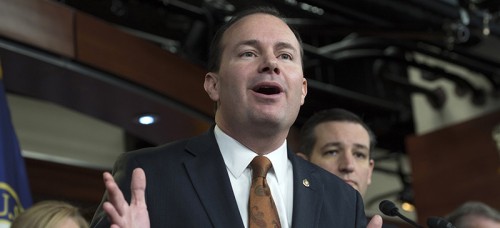The unprecedented and unwarranted bulk collection of the entire U.S. population’s phone records by the government is illegal because it wasn’t authorized by Congress, a federal appeals court said Thursday as it asked legislators to balance national security and privacy interests.

A three-judge panel of the 2nd U.S. Circuit Court of Appeals in Manhattan permitted the National Security Agency program to continue temporarily as it exists, but it all but pleaded for Congress to better define where boundaries exist or risk “invasions of privacy unimaginable in the past.”
The appeals court said if the government is correct in its legal arguments, it could also justify storing in bulk metadata associated with Americans’ financial records, medical records and electronic communications, including email and social media information.
An opinion written by Circuit Judge Gerald Lynch said Congress could “profoundly alter the legal landscape” after debate.
“Congress cannot reasonably be said to have ratified a program of which many members of Congress – and all members of the public – were not aware,” it said.
“The statutes to which the government points have never been interpreted to authorize anything approaching the breadth of the sweeping surveillance at issue here,” the court said. “The sheer volume of information sought is staggering.”
The NSA’s collection and storage of U.S. landline calling records — times, dates and numbers but not content of the calls — was the most controversial program among many disclosed in 2013 by former NSA systems administrator Edward Snowden. Some NSA officials opposed the program, and independent evaluations have found it of limited value as a counterterrorism tool. Snowden remains exiled in Russia.
U.S. Attorney General Loretta Lynch said the government is reviewing the court’s decision. She added that the June 1 expiration of the Patriot Act provisions provides opportunities to reauthorize the program “in a way that does preserve its efficacy and protect privacy.”
Jameel Jaffer, ACLU deputy legal director and lead counsel in the case, said the decision “warrants a reconsideration of all of those programs, and it underscores once again the need for truly systemic reform.”
U.S. Rep. Adam Schiff, D-Calif., a ranking member of the intelligence committee, said he hopes the ruling serves as a “catalyst for an end to bulk collection and the beginning of serious reform.”

